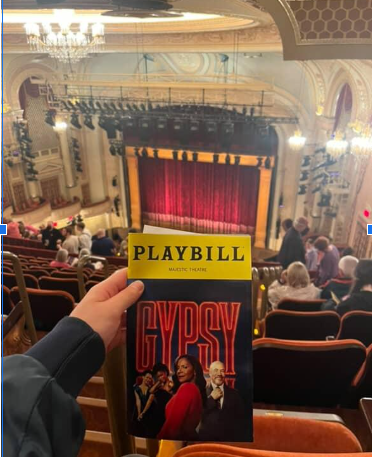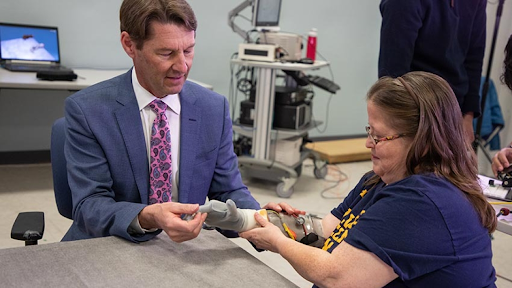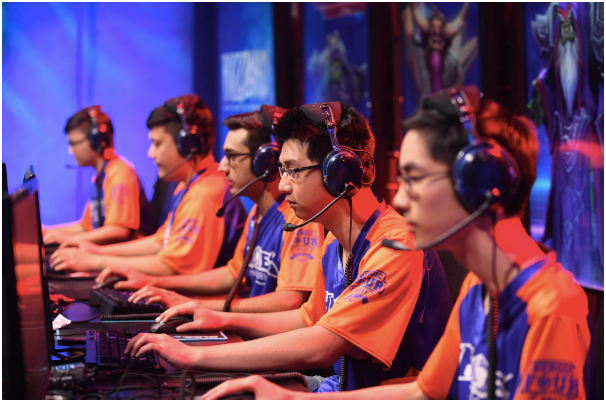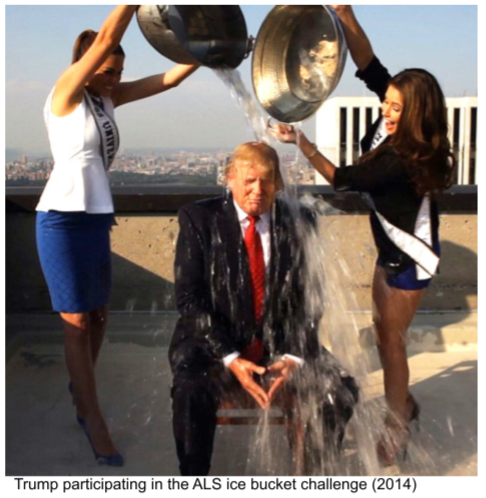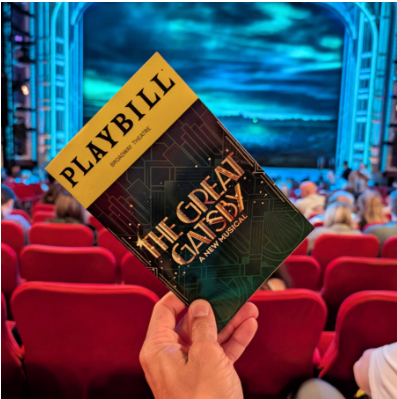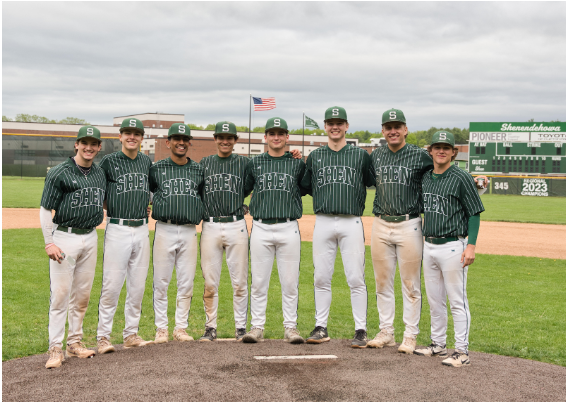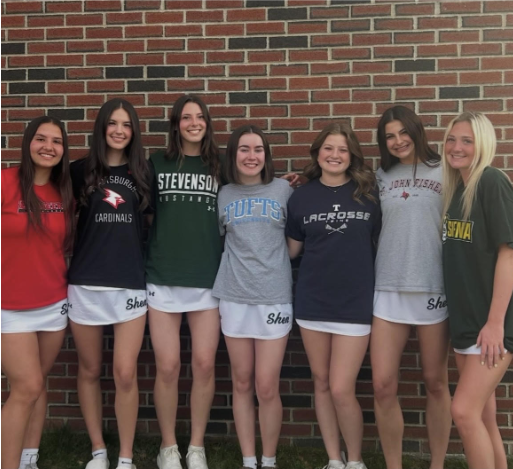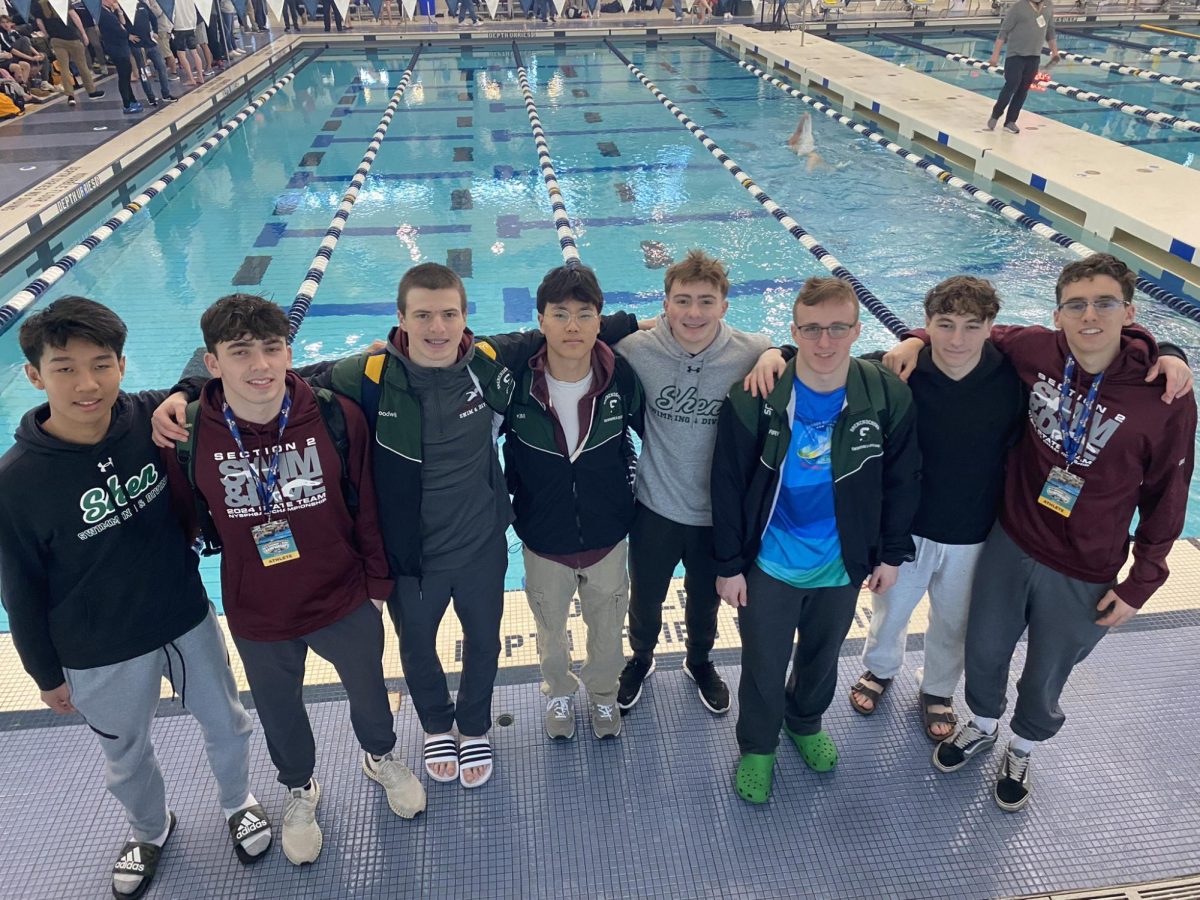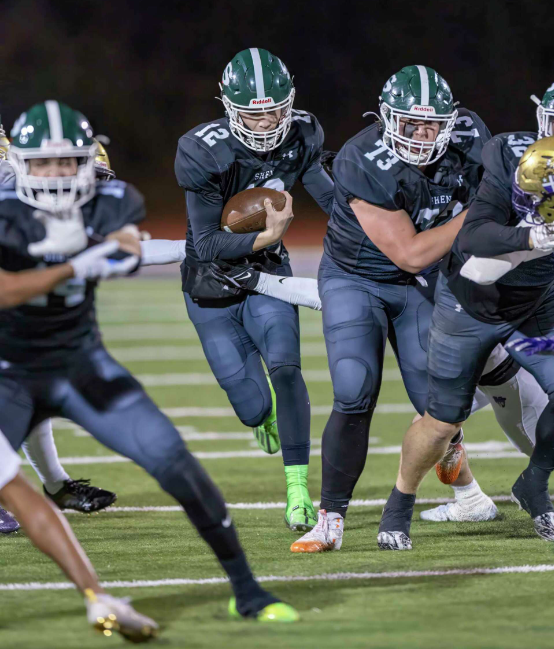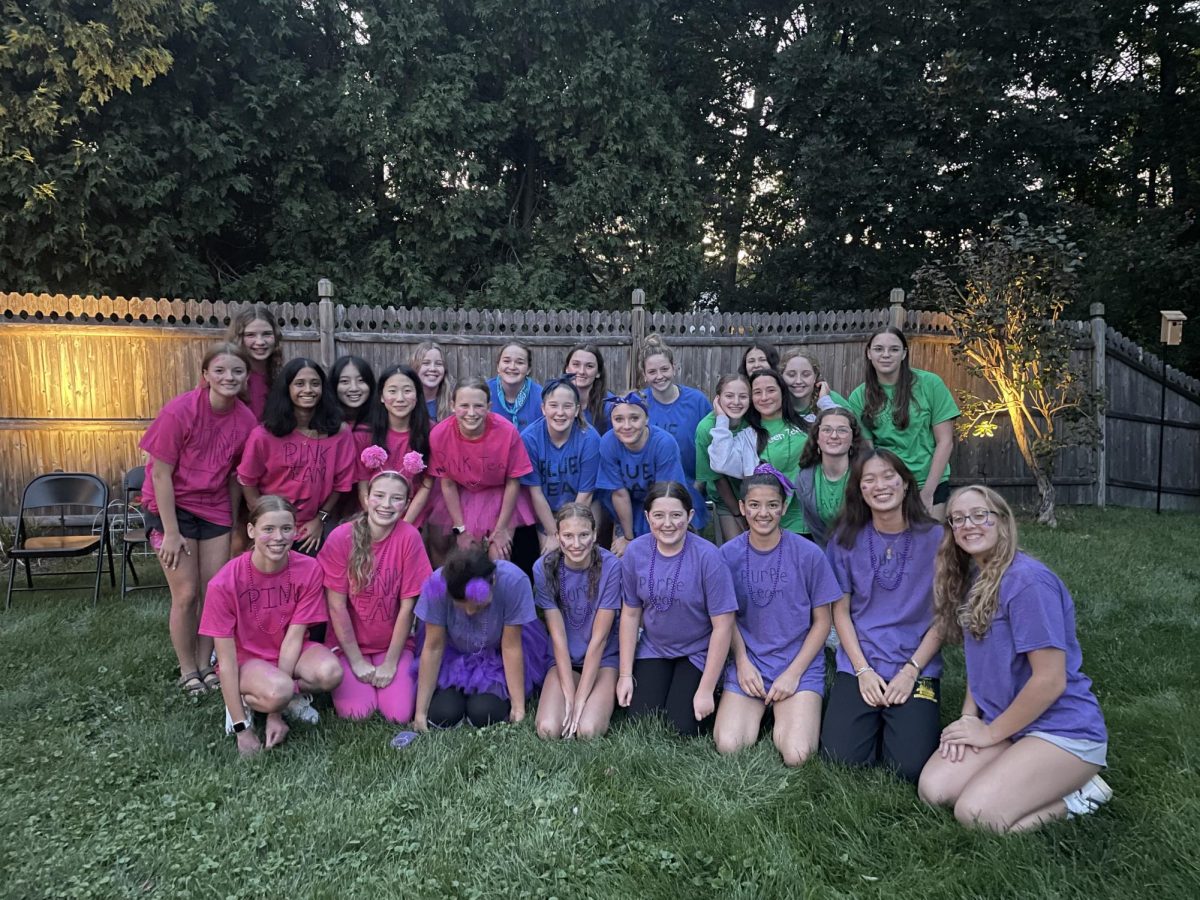Let’s talk about it: the rise of Esports, otherwise known as America’s current epidemic, which has recently spread to Shenendehowa High School.
Esports is the “sport” in which teams are assembled and compete against each other in a competitive gaming tournament. At Shenendehowa, the online platform PlayVs is used to compete in a league of 97 teams on the east coast.
Mr. Hood, Science Teacher and Shen Esports Coach, says that while Esports is not currently recognized as an official sport by the New York Public High School Athletic Association (NYPHSAA), the team is considered a “competitive club” for the time being.
The Shen Esports team competed this season playing Overwatch 2, Valorant, and Rocket League. I question the idea of encouraging high school students to play video games with heavy themes of guns for today’s day and age.
While I disagree with the concept of gun clubs with the amount of school shootings we see in this country, at least they teach proper usage and safety; however, Esports supports students to competitively play video games in which the main objective is shooting people. I feel that this contradicts efforts to minimize gun violence. I suppose it is better than having a gun club, but is it moral to encourage?
Gun violence aside, New York State is implementing a statewide cellphone ban beginning in the 2025-2026 school year. While I don’t necessarily agree with the ban, I don’t think that creating a “sport” where students play video games competitively aligns with the goals of steering students away from harmful or distracting technology.
Teachers and parents have expressed upset with their students’ media and video game consumption for years and preached how damaging these platforms are to teenagers and their education. The narrative that entertaining technology -like video games- is distracting and rots your brain has been pushed by teachers and parents since it became popular. So why are we now encouraging students to play video games by paying $50,000 for them to do so competitively?
Depending on your perspective, $50,000 may seem like a dramatic number; however, as listed in the 2025-26 Budget Book, Shenendehowa spent $50,000 on Esports equipment, excluding coaching salaries. Mr. Hood shared that with the allocated budget, “15 gaming laptops were purchased alongside mice, headsets, keyboards, and monitors.”
It is not lost on me that Shen is working with a rather large budget, but you don’t need an accounting degree to acknowledge that $50,000 is a large sum for some teenagers to play video games. It seems strange that we didn’t find a way to use pre-existing resources like school computers or chromebooks to jumpstart the team. I wonder if it would have been possible to allocate some of this money to more enriching areas like the library.
To play devil’s advocate, I can absolutely see how the introduction of Esports may very well benefit the students involved. Although not by the National College Athletics Association (NCAA), Esports has become a recognized collegiate sport by the National Association of Collegiate Esports (NACE) and has provided scholarship opportunities to those who wish to continue their Esports career in college.
I also acknowledge that providing an outlet for students to play video games as an extracurricular activity may encourage a boost in their academic performance if there are academic prerequisites attached. For example, instating a minimum GPA requirement and setting behavioral expectations.
It’s worth noting that Esports is an opportunity for inclusion. As Mr. Hood emphasized, Esports is an opportunity for students who don’t have the physical abilities of traditional athletes to experience a sport at Shen. Esports also has the opportunity to be a co-ed sport that students who identify as any gender can participate in, although there has been controversy over its male dominance.
While I agree that a school as large as Shen may benefit from an Esports team, it should continue to live as a competitive club. Clubs such as Speech and Debate or FBLA and DECA are both clubs at Shen that compete at a national level, yet nobody makes the argument that they should be nationally recognized sports. Shen Esports should remain in its place in the competitive club category, still gaining recognition for its competitive nature, but within reason.






